CNN's Misleading Compassion - The "advantages" of being raised without a father (Patreon)
Content
CNN recently tweeted “Advantages of being raised by a single mother outweigh expectations and outlast childhood embarrassment,” with a link to an article of theirs.
<figure>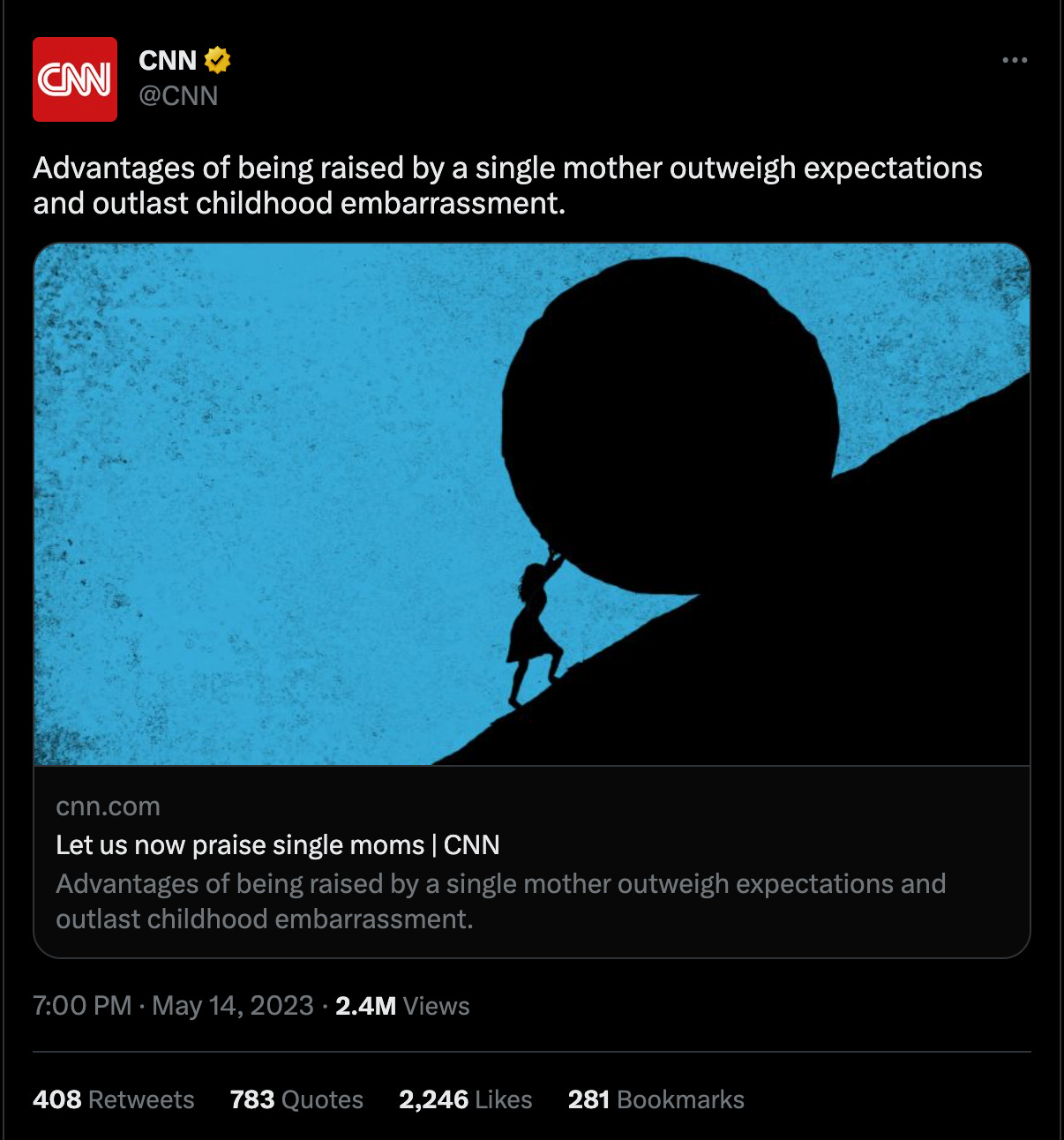 </figure>
</figure>Single mothers certainly deserve all kinds of admiration, but this word advantages stood out to me as the negative effects of being raised without a father (or stepfather or grandfather) are widely known. So, why is CNN bending the truth?
<figure> </figure>
</figure>The Statistics
With a citation either from the U.S. Census Bureau, the U.S. Department of Health and Human Services or one of many published research articles, Fathers.com lists out the consequences of Fatherlessness:
・Children in father-absent homes are almost four times more likely to be poor.
・Fatherless children are at a dramatically greater risk of drug and alcohol abuse
・Children of single-parent homes are more than twice as likely to commit suicide
・71% of high school dropouts are fatherless; fatherless children have more trouble academically, scoring poorly on tests of reading, mathematics, and thinking skills
・A 1% increase in the proportion of single-parent families in a neighborhood is associated with a 3% increase in an adolescent’s level of violence
・Being raised by a single mother raises the risk of teen pregnancy, marrying with less than a high school degree, and forming a marriage where both partners have less than a high school degree.
<figure>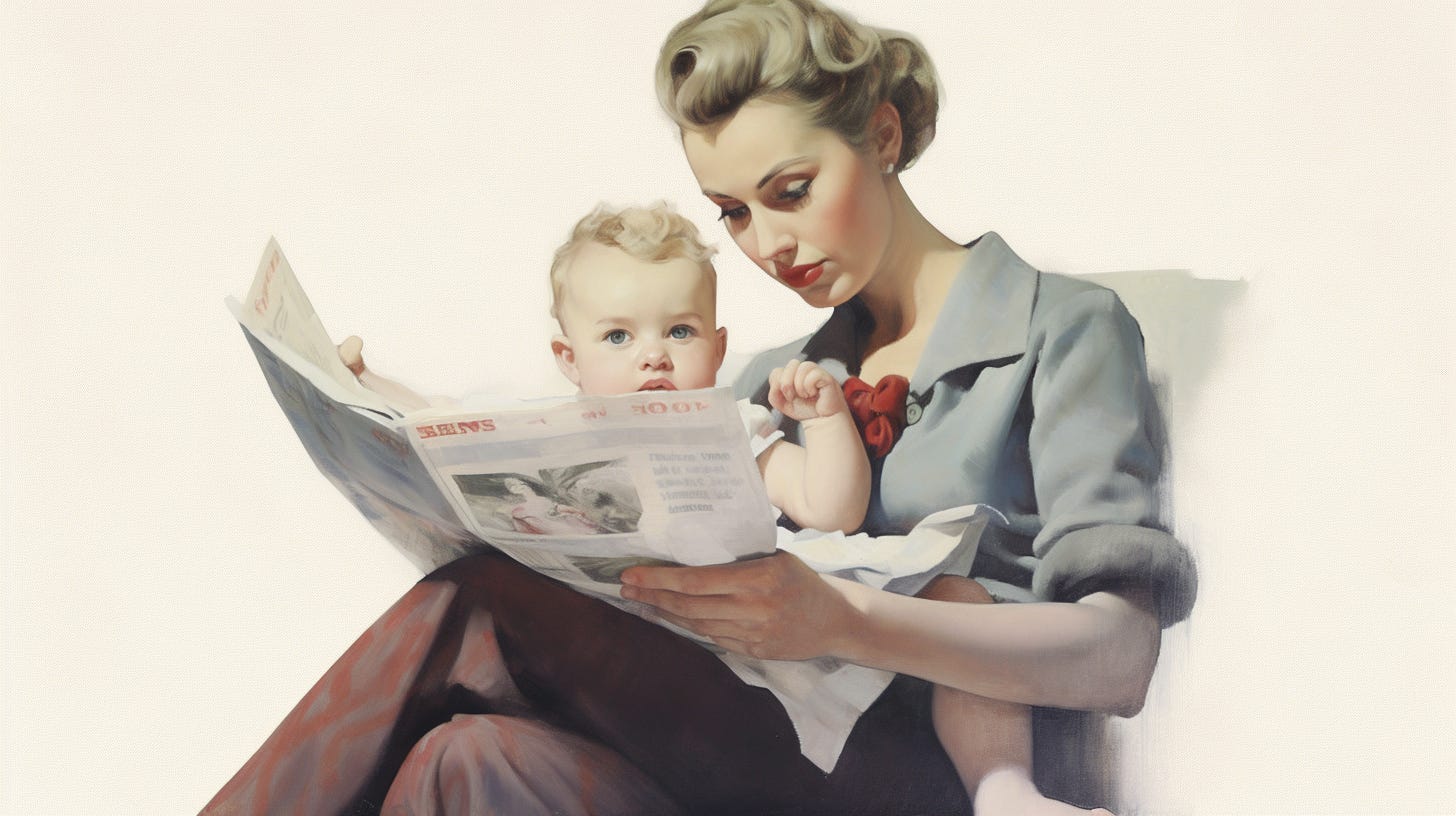 </figure>
</figure>The use of the word advantages earned CNN heavy criticism. The article is written by David G. Allen who grew up in a single-parent household. He does acknowledge that it’s established that growing up in a single parent household is associated with worse socioeconomic status, but he also remarks that:
A 2017 study, however, looked at the long-term effects of single parenthood on kids and found that it had nearly no impact on their general life satisfaction.
This is just flat out wrong. Here is a quote from that 2017 study:
Individuals who grew up with a single mother for their entire childhood and to a lesser degree also individuals who experienced parental separation showed a small but persistent decrease in life satisfaction into old age controlling childhood socio-economic status.
The data in Fig 1 of the study clearly shows that life satisfaction is consistently lower for those who don’t grow up with both parents.
<figure>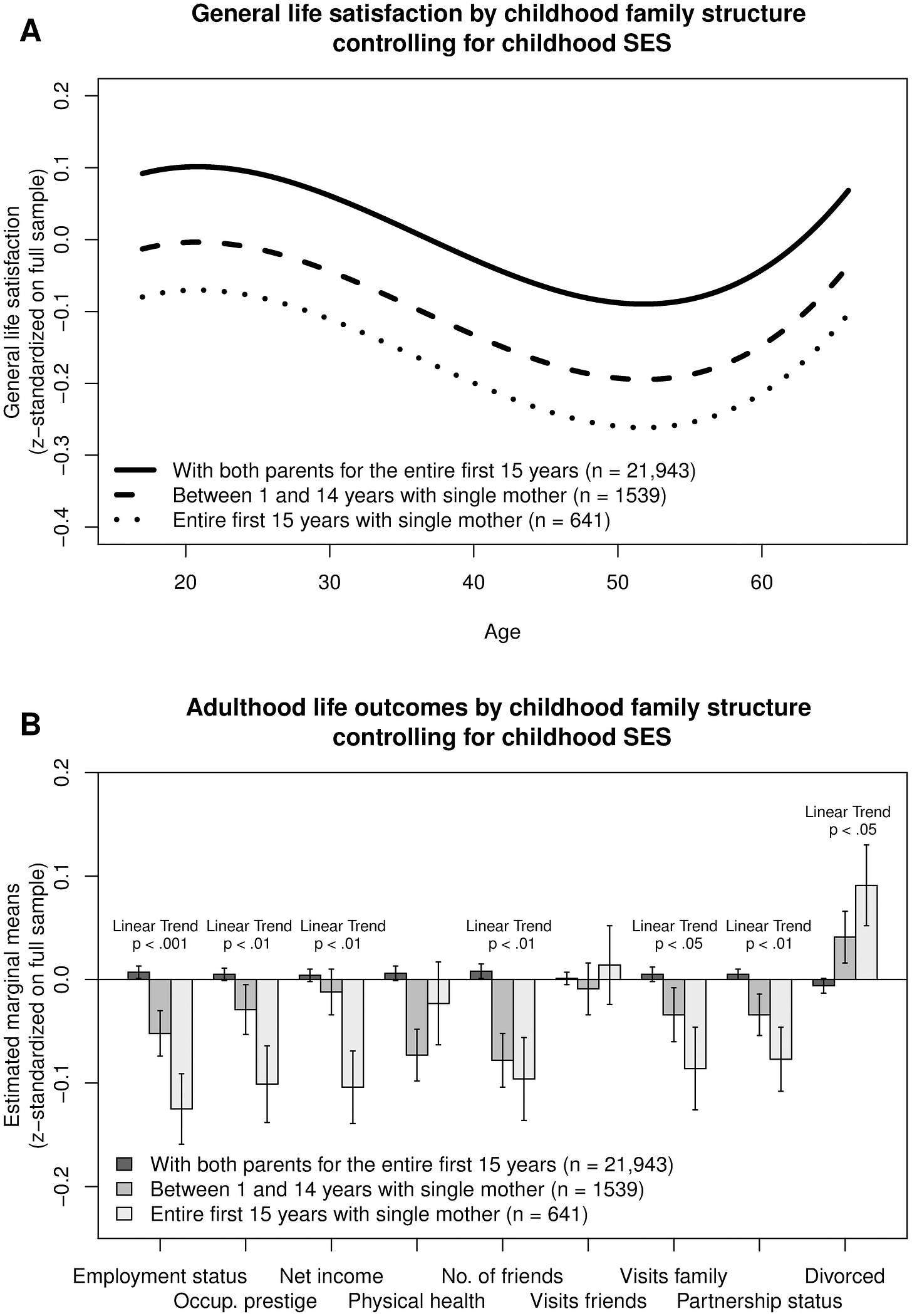 </figure>
</figure>Successful thanks to or in spite of?
David G. Allen writes of his childhood that:
“Nothing about the financial and logistical stress of our years together kept her from raising a responsible, decent, curious, creative and accomplished son with very high life satisfaction.”
Indeed. Obviously just because someone is raised by a single-mother doesn’t mean they can’t grow up to be a wildly successful respectable citizen with a satisfying and fulfilling childhood. Also there can be situations where it may be best for everyone if the parents get divorced and there can be instances where it is simply not possible or practical for a parent to have a spouse. No child is in any way “doomed” just because they only have one parent. But, based on the statistics, is it easier for a child to be a responsible, decent, curious, creative and accomplished adult if they are raised by one or by two parents?
<figure>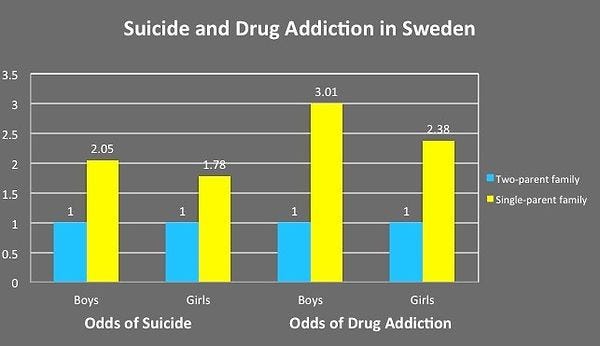 </figure>
</figure>Being raised by a single parent required an Emersonian amount of self-reliance. I got myself to school in the morning, figured out how to apply to college, paid my way through that education and embarked on a career with no shortcuts or introductions. Our poverty made me class-conscious even as I earned my way into the middle class myself. My role model for what women are and should be was smart, strong, independent and deserving of all respect.Even my childhood embarrassment was character-building, giving me a deeper sense of self-worth that is dependent neither on material things nor the opinion of those I don’t admire.
Indeed, people develop strengths based on the challenges they’ve faced. This is no surprise. Bullied as a child, Georges St-Pierre went on to become a professional martial artist and some regard him as the best MMA fighter of all time. Is being bullied to be considered an “advantage?” If you write these points as the opinions of someone who is not in the shoes of David G. Allen, it sounds sadistic:
・”Drastically limiting the amount of parental attention a child can receive benefits them by making them more self-reliant.”
・”People living in poverty are blessed with the gift of class-consciousness.”
・”Children should experience shame and embarrassment in front of their peers to develop a deeper sense of self-worth.”
Compassionate Double Speak
<figure> </figure>
</figure>Something about the CNN article reminds me of George Carlin’s bit on soft language.
Americans have a lot of trouble dealing with reality. Americans have trouble facing the truth, so they invent a kind of soft language to protect themselves from it. And it gets worth with every generation.
Carlin’s bit is mostly about euphemisms, he starts with the term shell-shock that arose in the first World War. Carlin describes it as when a person’s nervous system has been stressed to its absolute peak and can’t take any more input - the nervous system snaps or is about to snap. By World War 2, the condition got more syllables and it became battle fatigue. Then around 1950 it got up to eight syllables with operational exhaustion, “and the humanity has been squeezed completely out of the phrase, it’s totally sterile now, operational exhaustion - sounds like something that might happen to your car!” Then after the war in Vietnam, the same condition became post traumatic stress disorder, “and the pain is completely buried under jargon.” Carlin concludes that “I’ll betcha that if we’d still been calling it shell-shock, some of those Vietnam veterans might’ve gotten the attention they needed at the time.”
While bringing up several other euphemisms, he says: “poor people used to live in slums, now the economically disadvantaged occupy substandard housing in the inner cities.” One euphemism reminded me of the CNN tweet: differently abled. No matter how less uncomfortable this soft phrasing makes disabled people feel, it doesn’t solve their problem and the term is simply wrong. They do not have different abilities, they have less abilities.
Similarly, CNN shouldn’t be framing the challenges of being raised by a single-parent as “advantages.” No matter how nicely you frame it, single-parent households are burdened with challenges, and it is not the default for these challenges to net out as an overall advantage.
<figure>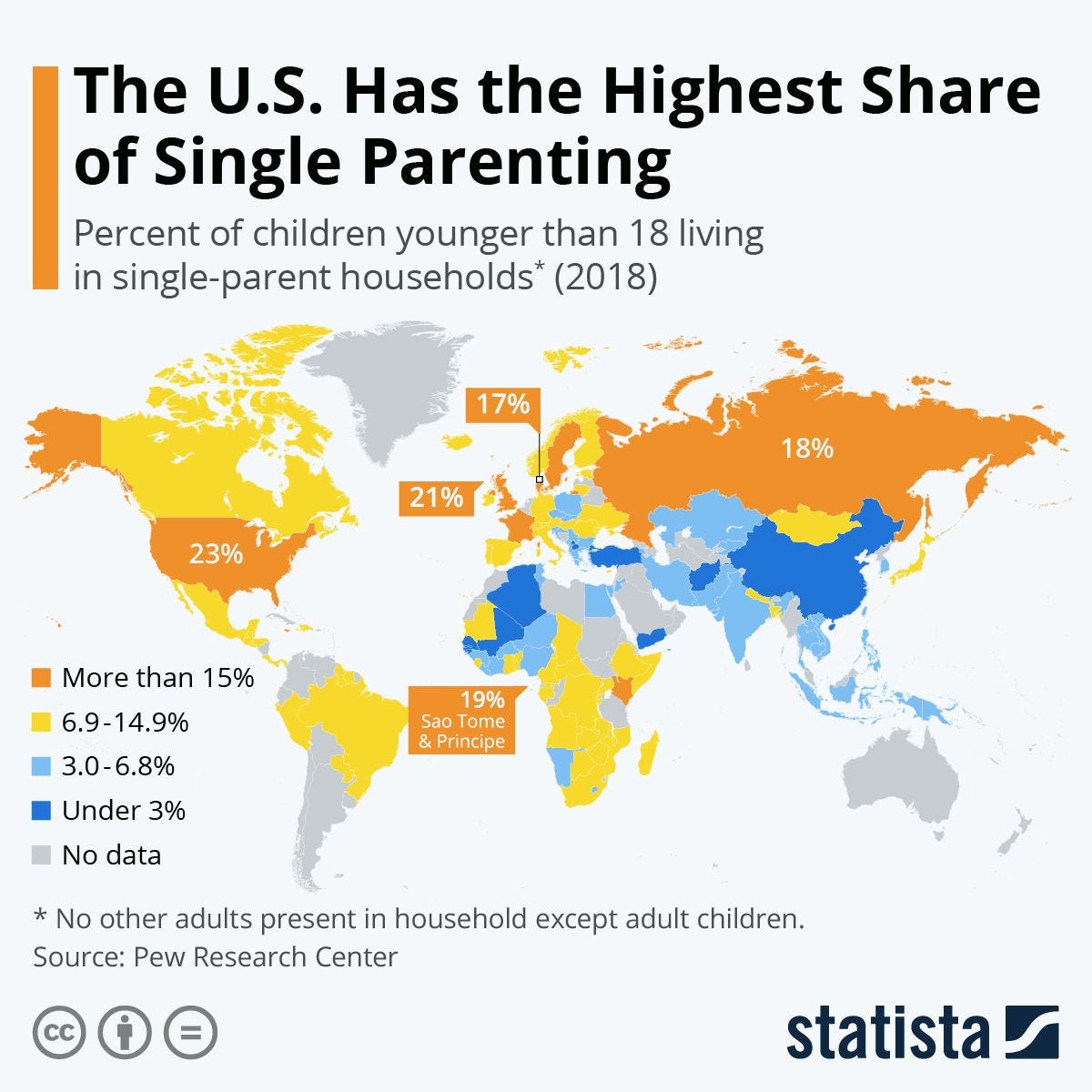 </figure>
</figure>The United States has the highest share of single parent households. Has CNN given up on trying to bring attention to this as a problem, and is now trying to downplay it? Publishing an article on the advantages of being raised by a single-parent, may serve to reduce the stigma associated with it which may in turn make kids and parents feel much better about themselves. Indeed, shaming single-parents or children of single parents is not productive. But, for better or worse, removing existing stigmas will likely encourage certain behaviors and discourage others.
This doesn’t need illustrating, but imagine a woman is recently divorced and she sees CNN and other media outlets publishing articles that make her feel less worried about her situation. Are tweets softening reality by talking about the “advantages of being raised by a single mother” going to slightly increase or decrease her desire to remarry or find a father figure for her child (which should be much better for the child based on data shared already) ?
<figure>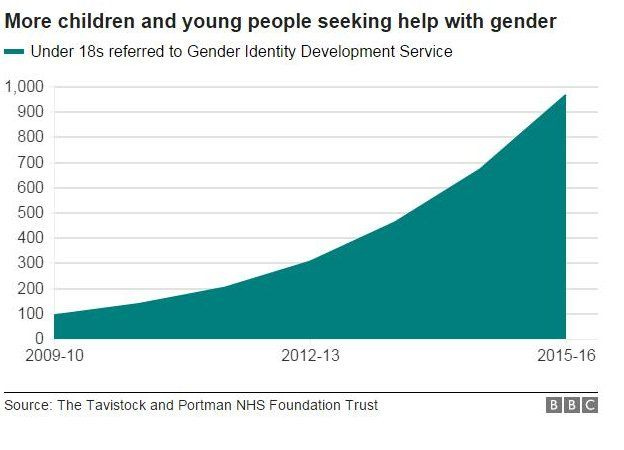 </figure>
</figure>I’ve written another Substack article about how the slow, cumulative influence of peers and media may plant the idea in minors’ heads that the source of their teenage angst is being born in the wrong body and that “gender affirming care” (some types of which will sterilize the kid) will solve that for them. Reading the article will give you more context for whether this is a good or bad thing but it doesn’t take much analysis to know that a flood of positive media about some behaviors is going to lead to more of that behavior.
<figure>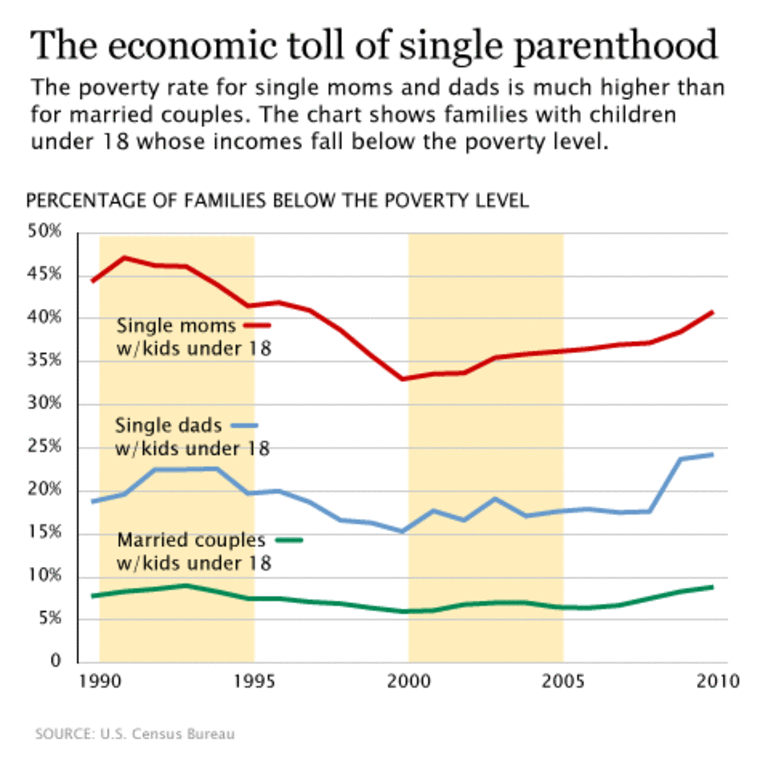 </figure>
</figure>CNN themselves published an article in 2012 acknowledging the challenges and detriments of single-parent households, saying:
The problem with the growing marriage divide in America is that children – and men – often pay a big price.For instance, research indicates that boys who are reared outside of marriage are about twice as likely to end up in prison by the time they turn 30… In general, children born and raised in a married household are more likely to graduate from college, find employment and enjoy stable marriages as adults.Likewise, married adults are happier and less depressed than their unmarried peers. …Thus, the problem with the retreat from marriage in poor and working-class communities is that fewer children, not to mention adults (especially men), benefit from the meaning, direction and stability afforded by an intact, family life. Conversely, American adults and children hailing from more educated communities and affluence are more likely to be doubly blessed with high levels of income and education as well as strong and stable families.<figure>
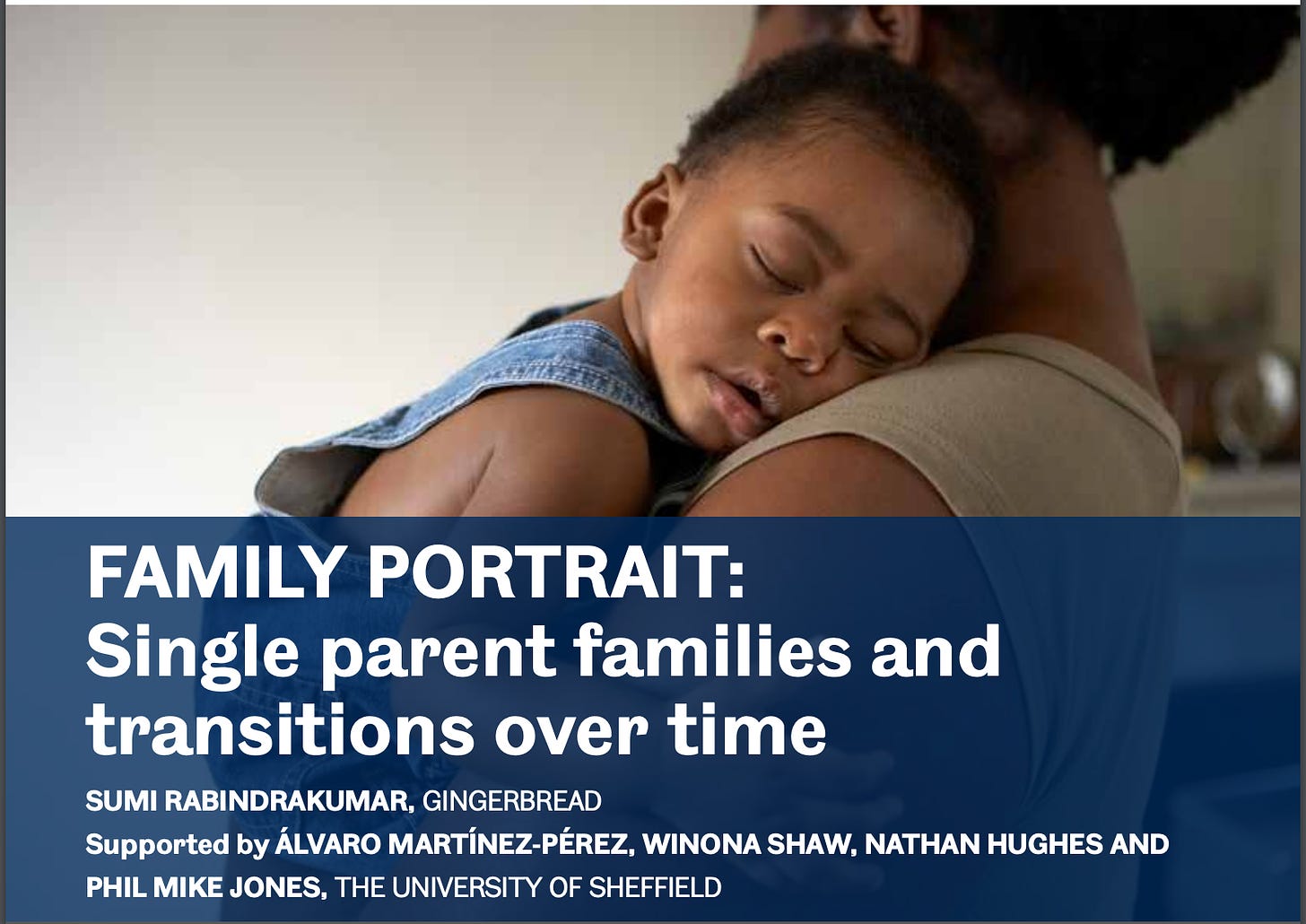 </figure>
</figure>Going back to CNN’s David G. Allen article, he writes:
A separate 10-year study on single parenting that collected data from 40,000 households in the UK came to a similar conclusion last year. “There is no evidence of a negative impact of living in a single parent household on children’s wellbeing, with regard to self-reported life satisfaction, quality of peer relationships, or positivity about family life,”
Looking at the study, Allen seems to be representing this one properly. It would be very encouraging to know that children’s wellbeing isn’t affected by living in a single parent household, but self-reported life satisfaction is hard to measure and is by definition not objective. That’s why it’s important to acknowledge the concrete, measurable statistics, like the ones echoed in Barack Obama’s Father’s Day Speech:
We know the statistics that children who grow up without a father are 5 times more likely to live in poverty and commit crime, they're 9 times more likely to drop out of school, 20 times more likely to end up in prison. They're more likely to have behavioral problems or run away from home or become teen parents because the father wasn't in the home. The foundations of our community and our country are weaker because of this.
So at the end of the day, as acknowledged already, to say that the "advantages of being raised by a single mother outweigh expectations" makes light of the challenges that single parent households have to deal with.
I titled this “harmful compassion” because the framing of the article seems to serve the same purpose as say “fat acceptance.” On the surface, an overall push to have obese people feel less criticized or ostracized seems like a good thing. In general, we should avoid making others feel bad about themselves. But, at some point it goes too far. Telling overweight to obese people that carrying all that extra weight is “healthy” (per Cosmopolitan’s February 2021 issue) is just flat out wrong and may lower some people’s motivation to reach a healthy weight.
<figure>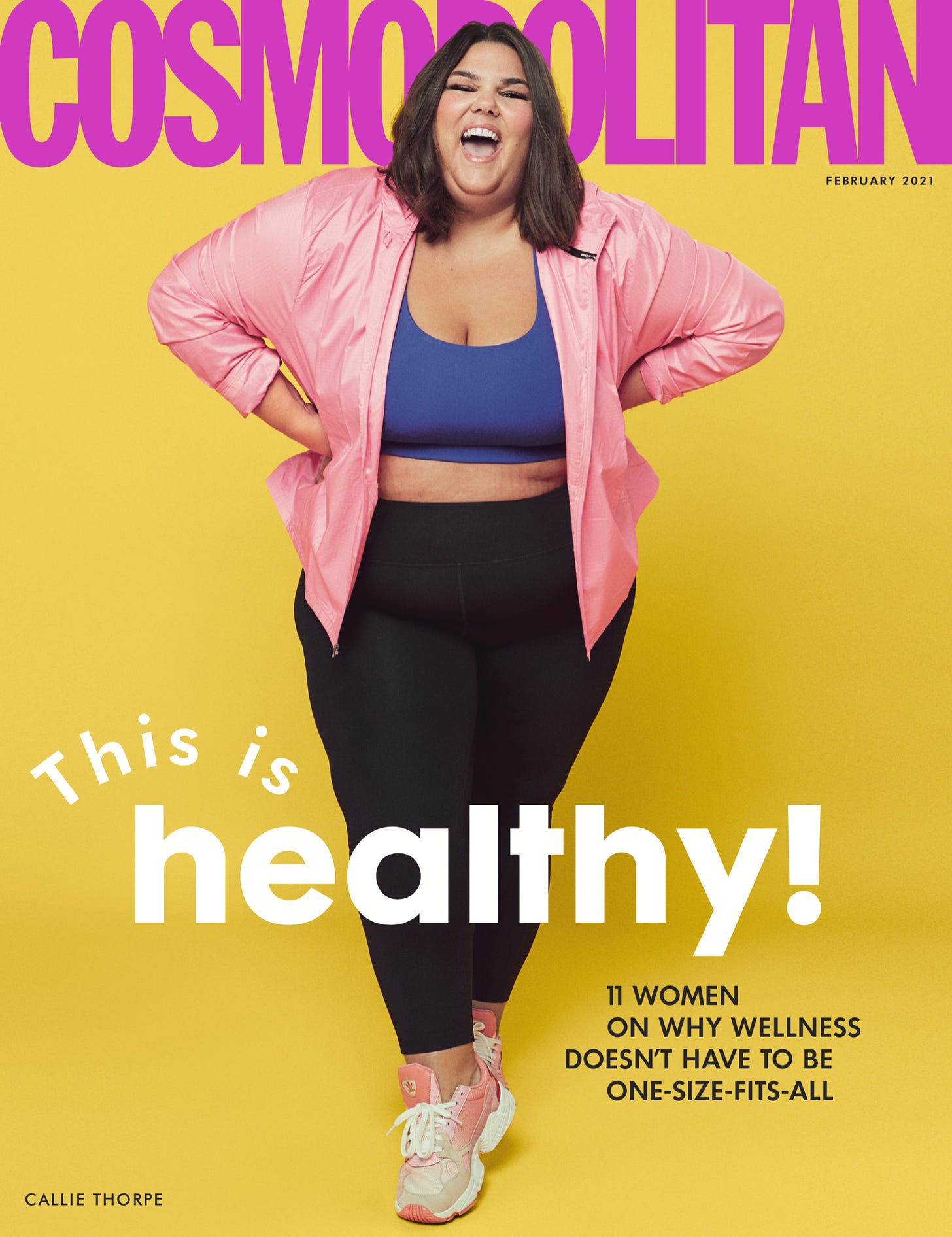 </figure>
</figure>This is not the best comparison considering losing weight is probably a lot easier than remarrying after a rough divorce or after becoming a widow or a single mother making time in her extra busy schedule to find an appropriate partner, but you get my point.
When I interviewed Dr. Ken Berry about doctors being accused of fat shaming, he said: “It’s not fair, but life’s not fair. [Obesity] may not be your fault, but it is your problem.”
Using soft or comforting language like “plus-size” might make an obese person feel nice, but it doesn’t solve their problem and may reduce the urgency with which they act to solve the problem. The same goes for CNN’s discussing the “advantages” of being raised by a single mother. Some resilient children may turn challenges into strengths, but that doesn’t change the fact that it is advantageous for the child to be raised by both parents.
<figure>Surely there’s no methodological flaws with this survey.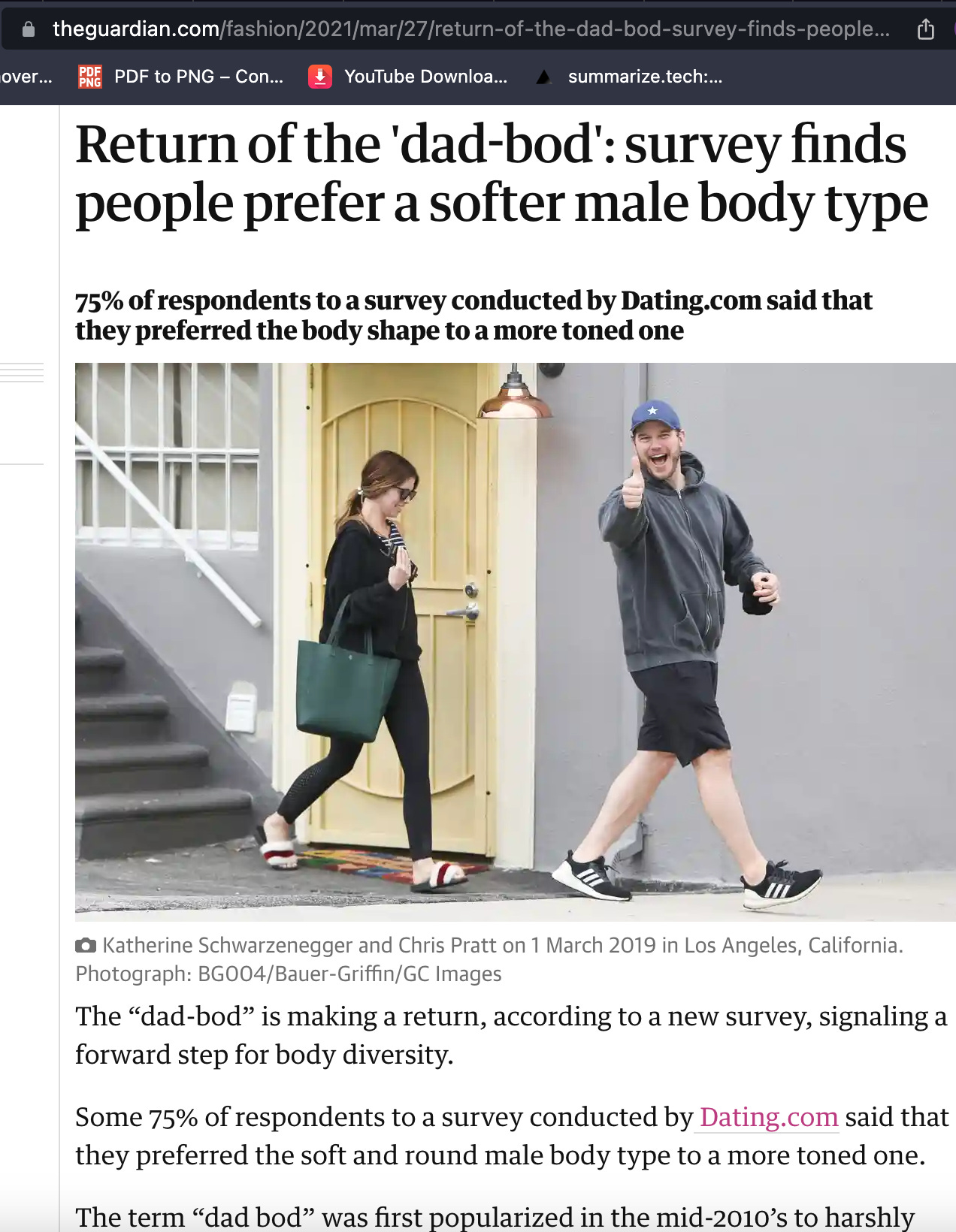 </figure>
</figure>Speaking of soft-language and softening realities, I’m sure the widespread preference for a soft ‘dad-bod’ was the motivation for this scene in Thor, Love and Thunder
<figure> </figure>
</figure>